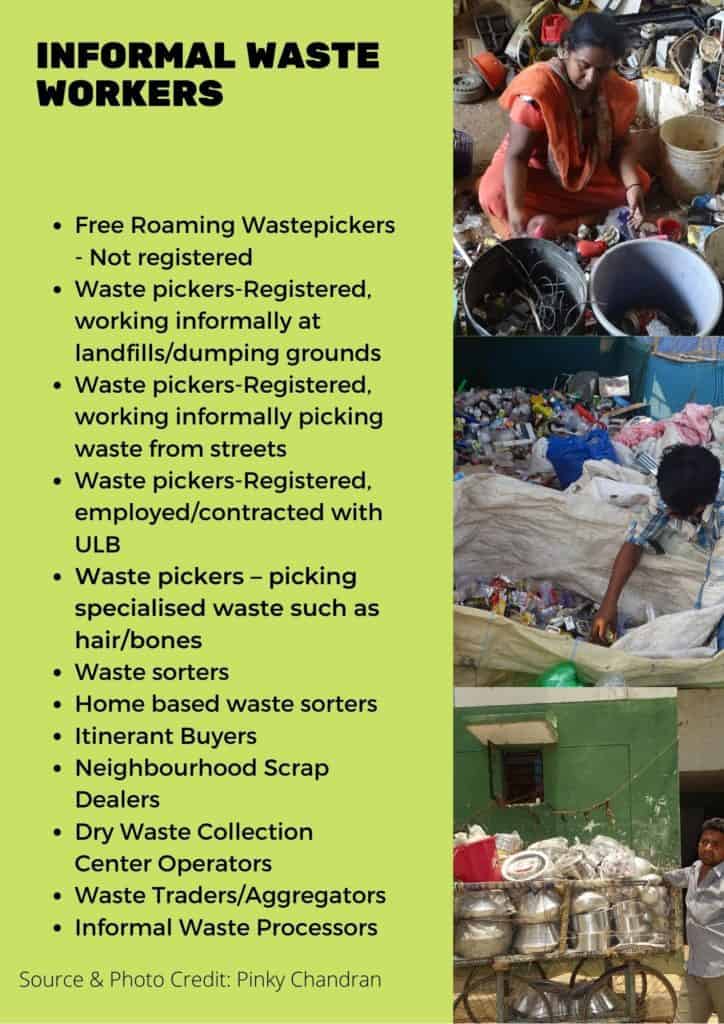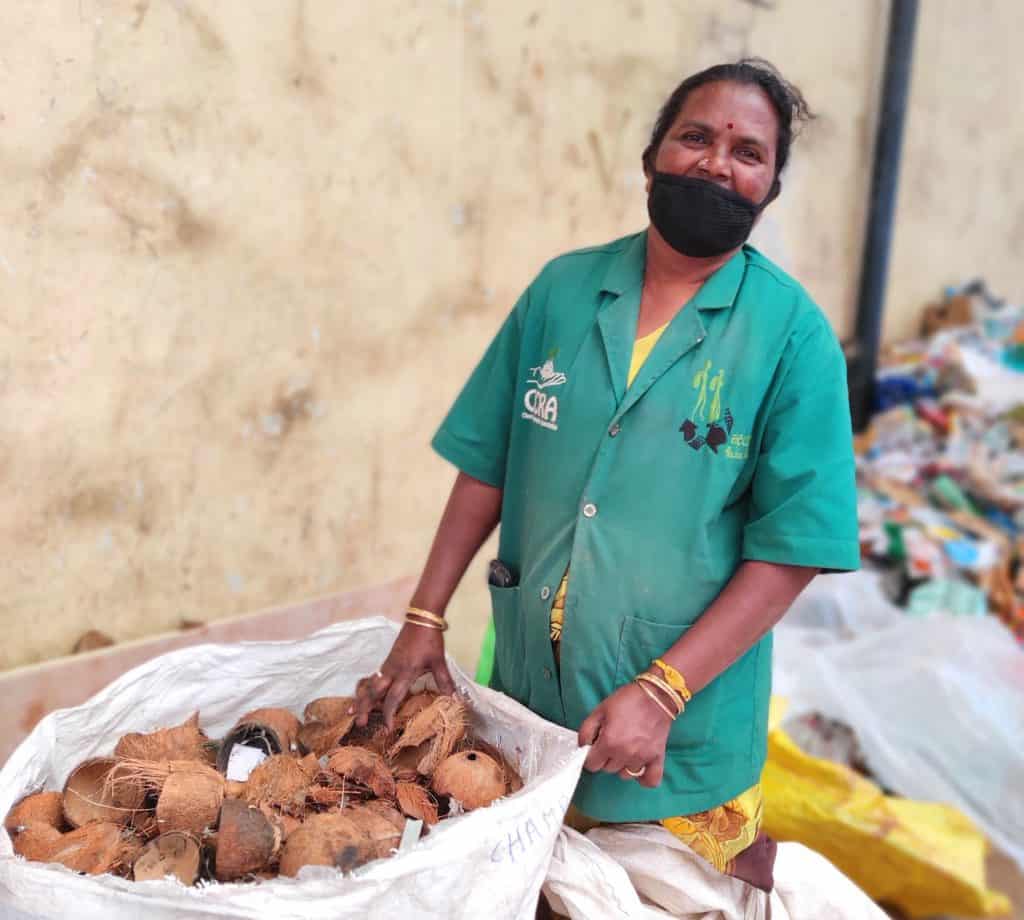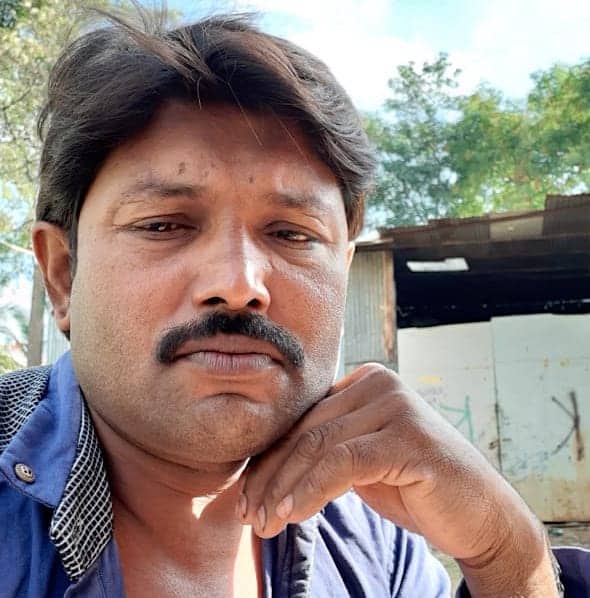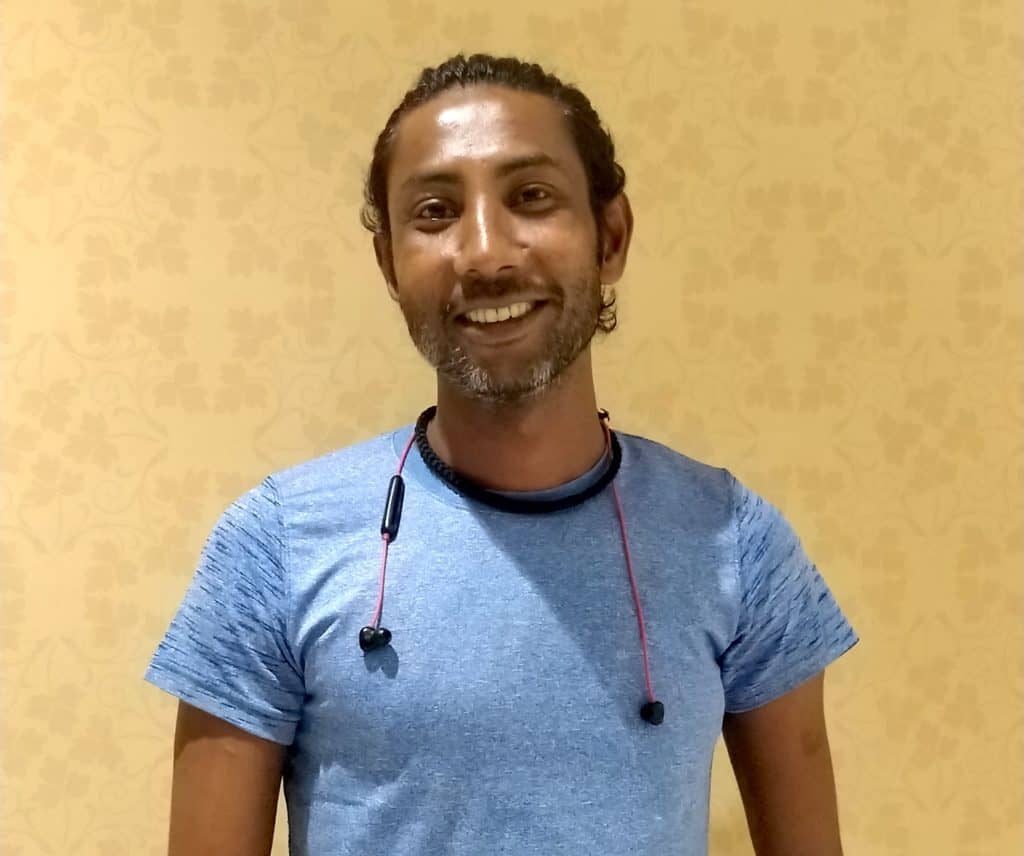“April-May is the peak period for us to collect a lot of newspapers and books; unfortunately, we were unable to procure any kind of waste,” says Muniswamy, a scrap dealer from HSR Layout. With his shop shut, he had no income, yet he had to continue paying rent for the premises. Muniswamy’s experience reflects the story of countless informal waste workers across Bengaluru, after the pandemic led to multiple lockdowns, disrupting livelihoods.
Maheshwari collects waste hair by picking from streets, and also goes house-to-house buying hair from individuals, and sells in bulk. She says, “With the lock down, I couldn’t go out. After it was lifted, I tried, but people were scared and they sent us away.”
The strict lockdown triggered by the pandemic in 2020 created an unprecedented situation for solid waste management and the people who make their living from waste. Sanitation services across India were exempted from the lockdown with waste collection viewed as an essential service. However, informal waste collectors – waste pickers, itinerant buyers etc., were excluded. They could not venture out to collect waste.
Other parts of the waste processing cycle were non-functional too. Disruption in activities of sorting, grading, aggregating, trading, and processing led to accumulation of waste material.

Dry Waste Collection Centre (DWCC) operators in Bengaluru, while maintaining day-to-day operations, even with limited workers and potential risks to workers’ health, reported a number of work-related challenges – lack of loaders, transport, and buyers, which led to a pile-up of recyclables.
Vishwanath, DWCC Manager at Hasiru Dala, a social impact organisation that works with waste workers, explains the confusion when the lockdown was first announced, “Some of the dry waste center operators’ vehicles were seized. It was only after we received passes that things improved. However, (individual) waste pickers and other informal waste collectors continued to struggle.”
No work, no money: waste collectors’ harsh reality
Most waste workers survive on daily collections and have no long term savings, highlighting their precarious livelihoods and the undervaluation of the services they provide.
While waste picker organisations, along with other groups in the city stepped in to provide dry rations, workers lost their livelihoods. Specialised waste pickers like hair pickers, bone collectors and petty scrap dealers were badly effected.
Mohammed Imran, Dry Waste Collection Centre Operator at Ward No. 123, Vijaynagar, recollects, “Access to cooked food was a problem, as the Indira Canteen offered breakfast only till 9am, and this clashed with our collection hours. Very often, most of us had to go back home for lunch and report back, which was tiring. But then a local restaurant stepped in and offered 250 (food) packets to all DWCCs.”
DWCCs started seeing a huge influx of used masks and gloves, an unexpected and overwhelming biohazard. As a result, workers hesitated to work with waste. Organisations like Hasiru Dala trained workers on safety precautions and using personal protective equipment; so workers large were able to follow COVID appropriate behaviour and mitigate the risk of working with biowaste.

”I was alarmed at the number of used masks that kept coming into the centre. I was also wary as they were mixed with dry waste. What could I do? I tried sanitising them but then decided I had to make an appeal and made a video on how to dispose of used masks and gloves.”
Kumudha

“I am scared to collect waste from door to door.. whoever is giving the waste – we do not know if they are healthy and keeping fine. We are also very scared to even talk to people, maintaining social distancing, making sure we are contactless… we are using gloves, masks, sanitiser, washing hands, but we are always scared. In some places, we are also getting used masks, we are again scared to touch them, but some people neatly pack it up in the covers we put them in the reject waste.”
Velu K
Lockdown 2021: No better this year
Limited cash flow, eroding margins coupled with the breakdown of supply chains, no facility to transport materials and decline in oil prices — all led to a drop in revenues in the recycling sector last year.
Things were better this year in terms of prices; still, cash flow was an issue, as all aggregators and traders had to stop work, due to the lockdown. This in turn, hurt the earnings of the informal waste workers; Maheshwari the hair waste picker’s case also shows us the larger ecosystem – hair is mostly exported, but there was no aggregator buying it, and this continued through the second wave.
The cumulative effect of the last year will likely continue in the long run, since workers have neither access to working capital and other financial instruments, nor better technology and infrastructure for operations. This has had a negative cascading effect, translating to poor rates further down the chain, hurting the waste pickers, who are barely managing to make ends meet.
Venkatesh, who works in Jolly Mohalla, the recycling trading market in Bengaluru, says the market had been closed from May. “I buy plastic woven material, stitch bags and sell them back. These bags are used for packing and sorting of recyclables. Without our bags, it is tough for the traders to transport recyclables, but today there is no one in the market (to buy these bags), it’s been tough to pay the rent, the landlord is pushing us… we don’t have any cash on hand to manage our daily life.”

Chandpasha, a godown owner at Nayandahalli (Ward no. 41), who has been in the business for over 20 years, says, “The pandemic has been cruel, and the lockdowns have been harsher. There are no sales, no market for any product. We have also had to stop buying from the kabadiwalas. The BBMP did provide some ration kits, once, but apart from that we haven’t had any assistance from anybody.”
Read More: “Pourakarmikas are our defence against corona; here’s how to keep them (ergo all of us) safe”
Challenges in workplace and residences
The conditions in waste pickers’ homes reflect similar dangers. It is impossible to maintain physical distance in their residences and they lack access to regular water supply as well as clean, functional toilets.

Mansoor, Dry Waste Collection Centre Operator, says, “Last year we had no cases of Covid-19 in our areas and our slums, but this year in Rajeshwari Nagar, where I stay, 20 people have been affected by COVID. Since all of us are under home isolation, the challenge is to ensure we are able to fill water at the time BWSSB releases it.”
Shivarajamma, a field worker, describes the situation in Sumanahalli where there are 120 households, with over 615 residents. They have five community toilets in all, three for men and two for women. However there is no cleaning or maintenance done, as the BBMP has not taken responsibility.
Most informal waste workers have limited access to health check-ups and medicines. In cases where a family member gets infected with COVID-19, the family must grapple with the inability to isolate separately and to afford treatment costs.
Access to sexual and reproductive health services has also been severely impacted. Lakshmi Karunakaran, activist, and Trustee, Hasiru Dala who works with the children of waste workers, states, “While COVID-19 rampaged through the country and hospitals diverted their staff and services to meet the growing needs in COVID wards, it severely affected primary healthcare. Pregnant women, already a vulnerable group, found access to hospitals and services difficult. Many decided to skip scans and regular doctor visits because of the fear of infection and/or lack of services.” Mansoor points out that one of his fellow DWCC operators lost his wife due to delivery complications during childbirth; he believes that was totally preventable.
Waste pickers living in informal settlements have also got to deal with lack of waste management services, and even worse, face the threat of eviction.
Waste workers face food insecurity
“When I go waste picking, I am able to earn between Rs. 60 to 150 based on the type of waste I collect and that helps me feed my family. With no income, I cannot buy food, or I sometimes have to make do with whatever I can,” says Laxmi, a waste picker. Lack of food supply reserves and diminished capacity to buy essential items has led to poor nutrition. HC Nagamma, a hair picker at Nagawara, ward no. 23 adds, “Our lives are at great risk, and we live in the present. We have nothing for tomorrow, we hardly (earn) anything. With the lockdown relaxation till 10am, we go early morning to collect hair, some days we are lucky and sometimes we don’t get anything for days together. We haven’t had any assistance from the government.”
Koushalya, a waste picker from Jolly Mohalla, Ward no. 139 adds, “Last year we did not face so much of a problem, we had three meals given free, this year it’s been very difficult to lead our lives, we have absolutely no income… We are literally standing at our doorstep every day and seeing if somebody will come and give something, and again if they continue lockdowns, we will have nothing left.”
Read More: Are informal workers in any better state this lockdown?
Double whammy for children of waste workers
Children of informal waste pickers have seen each one of their primary needs being severely affected – food, water, shelter, education. With their parents’ income severely affected and the looming uncertainty of school reopening, most of them have had to take on adult responsibilities both inside and outside the home more than ever before. Such parentification of children, where they have to take on adult/parent roles, leads to deep psychological damage.
The pandemic has also exposed the susceptibility of the children to child labour, child marriage, and physical/emotional/sexual abuse – with children often having to stay indoors with their abusers with no relief. The fact that Childline received over 4.6 lakh calls in the first 20 days of the first lockdown is telling of the psychological impact of the pandemic on the children – a problem that is yet not been systematically addressed.
There is an absolute emergency today when it comes to children from underserved communities and the systemic neglect that they are facing. Lakshmi Karunakaran adds, “Historically, the dropout rates among children of waste pickers have been very high. Over the last decade, Hasiru Dala has worked on putting children back into schools and provided support (scholarships, educational loans etc.) to make sure that children stay in school and do well. Unfortunately, much of that effort is in limbo right now – as we address widespread issue of child labour.”
Lakshmi says while the government has tried to run online classes, the digital divide has further marginalised the children and made basic education inaccessible. With school closure, children are missing out on mid-day meals. With dry ration not available to all children, malnutrition is on the rise within the community.
The stories of waste workers have always been a stark reminder of the indignities and inequities faced by marginalised communities everywhere. The COVID pandemic has only amplified it. In part 2, we shall see what policy changes have been proposed in the waste recycling sector and what action Bengaluru has taken on the ground.
[Beula Anthony also provided inputs to this article.]